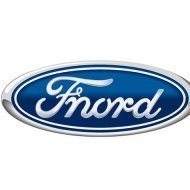Leaderboard
Popular Content
Showing content with the highest reputation on 05/07/2024 in Posts
-
5 points
-
3 pointsRead my first paragraph again. It is a call for intifada. I conceded that some Jews would likely survive the violent war. What I left unsaid was: congrats, you win the semantic Olympics, Squis Lite! Some Jews would survive! It's pretty much mostly peaceful by your centrist standards!
-
3 pointshttps://imgs.search.brave.com/8v03DKhZBwDteVfgyRvtL4jJp9f9Q8Y1_h5JwdKJUCw/rs:fit:860:0:0/g:ce/aHR0cHM6Ly90NC5m/dGNkbi5uZXQvanBn/LzAwLzQzLzQ0LzIx/LzM2MF9GXzQzNDQy/MTc1X1p4Y2lFdmJK/VEtndkVrT0M5MzE4/TDhpSzhCRnVUTFBz/LmpwZw Here's a map of Israel. Locate the river. Locate the sea.
-
2 points
-
2 pointsLol. Just another dumb female exercise. Step 1- say something incredibly stupid that is not based in logic. Step 2- when challenged on the sheer stupidity of the matter, point out that this is based on feelings caused by the evil patriarchy. And feelings are your truth, cant be proven wrong, blah blah. Step 3- act like a victim and redirect criticism of being so dumb as attempted rape or support of rape. Say rape a lot. Rape, rape, more rape. Step 4- start thinking of other dumb female exercises. Step 5- go read other dumb females responses and feel really good about yourselves and pretend that women support each other in the comments section. Step 6- secretly realize how stupid your answer or actions were. Step7- engage in self loathing behavior because realizing you are dumb is kind of crappy. Pretend this is due to ptsd, fibromyalgia, migraines, or some other female cope. Step 8- engage in subterfuge of other women Step 9- fakely complement something. Like the ugly yellow sweater your coworker wore. Step 10- pick on your daughter Step 11- post picture of yourself online yearning for compliments Step 12- be miserable because now you have to sit on your growing fat rear thinking about how stupid it was to think that you have less danger from a bear. A bear. The ultimate apex predator that can get stung by bees in the face fifty times while killing a pack of wolves all because it wanted some honey and likes the taste of wolf pup. Step 13- never let anybody know that you realized how dumb you are. Talk about emotions, feelings, etc. Step 14- get upset that men call you emotional now. Step 15- get in an argument with your husband because he doesnt care what pattern is on the kleenex box. Step 16- try to get back the thought that you are smarter than your husband by womansplaining to him that kleenex is a brand name and that you actually buy the cheaper aldi version of "facial tissue" and he doesnt have any idea how much money you save the family. Step 17- clip coupons and join ibotta. Step 18- find influencers that post ibotta tips and other dumb female exercises. Step 19- return to step 1.
-
2 pointsIt is this moment, right now, quite seriously, that I have finally realized that no, it's not that white people just don't understand us or aren't our neighbor or aren't friends with us or don't have examples to prove we are equally intelligent, equally law abiding, love God like you, love family like you, love our children as you love your children. I truly used to think, until right now that whites just didn't have enough exposure to not be racist. Now I know that you all hold on to racism despite all that you know about blacks. You are racist and are proud of it and encourage it and you make up lies to support it and you never had any intention of letting it go of racist thoughts and you want it to grow forever. You all are racist to your bones and are truly hateful. Kids calling for a cease fire in Gaza and divesting has nothing to do with supporting Hamas. You all are creeps.
-
2 pointsWasn't there a lawsuit occuring today?
-
1 pointSooooo instead of looking at this absurd waste of time and money for what it is. Corporate America is just going to call it something different and go about the same it has been. They really believe a name change is going to keep them from being sued? Last year, Eli Lilly’s annual shareholders letter referenced the acronym for diversity, equity and inclusion 48 times. This year, “DEI” is nowhere to be found. In March, Starbucks got shareholder approval to replace “representation” goals with “talent” performance for executive bonus incentives. At Molson Coors, “People & Planet” metrics have displaced environmental, social and governance (ESG) goals, and the acronym DEI has disappeared altogether. Amid growing legal, social and political backlash, American businesses, industry groups and employment professionals are quietly scrubbing DEI from public view - though not necessarily abandoning its practice. As they rebrand programs and hot-button acronyms, they’re reassessing decades-old anti-discrimination strategies and rewriting policies that once emphasized race and gender to prioritize inclusion for all. It’s a stark contrast to 2020, when the murder of George Floyd unleashed a racial justice movement that prompted companies to double down on policies aiming to increase opportunity for groups that have historically faced discrimination. Less than a year after the Supreme Court struck down affirmative action in colleges and universities - a landmark ruling that found race-conscious admissions violated the right to equal treatment under the Constitution - a growing contingent of critics is arguing that DEI creates inequalities of its own. Some conservatives have blamed DEI for a variety of problems, such as the Baltimore bridge collapse and Boeing’s safety woes, without providing evidence. Dozens of anti-DEI bills are being considered by state legislatures across the country, and DEI looks poised to become a wedge issue in this year’s presidential election. Johnny C. Taylor Jr., chief executive of the Society for Human Resource Management, said that practitioners of DEI and its antecedents traditionally have focused on improving representation for historically marginalized groups, believing that “the magic bullet was diversity.” “We underestimated that inclusion was the real challenge,” Taylor said. “Now people are saying, ‘Not only should we probably call it something different, we should probably evolve it.’” This shifting landscape is forcing companies and consultants to adapt on the fly, with many acting preemptively to guard against the legal threats that have led some firms to recast or discard race-based initiatives. They’re renaming diversity programs, overhauling internal DEI teams and working closely with lawyers. Some are moving away from using racial and gender considerations in hiring and promotion, and toward approaches that focus more on inclusion. To be sure, some companies have successfully fended off challenges. In April, a discrimination lawsuit against an Amazon grant program for Black, Latino and Native American contractors was dismissed by a federal court in Texas, though the plaintiffs have appealed. Pfizer and Starbucks have prevailed in court against similar legal attacks, though Pfizer modified the DEI program in question to make it race-neutral, according to court filings. And many companies have held onto their programs since the Supreme Court ruled against Harvard and the University of North Carolina last June. Six months after the ruling, the employment law firm Littler Mendelson reported that 91 percent of the 320 executives surveyed said the ruling had not lessened their prioritization of DEI. In fact, 57 percent said they had expanded their DEI programming in the past year. But that sentiment is far more subdued than it was in 2020, when corporate America poured more than $50 billion into racial justice causes. Meanwhile, the DEI industry - which was worth an estimated $9 billion in 2023, according to market researcher Fact.MR - is also rethinking its public face, consultants say. Last fall, a few months after the Harvard-UNC decision, Taylor was already noticing growing antipathy toward the methods that companies, institutions of higher education and other organizations used to diversify in their ranks. So instead of referring to DEI, Taylor switched to calling these efforts “IED,” putting the focus on “inclusion” as DEI accrued cultural and political baggage. SHRM, the human resources association he heads, changed the name of its annual DEI conference to “Inclusion 2023.” Some practitioners and executives dismissed the rebrand as superficial, Taylor said, a concession to political correctness. But months later, his strategy has proved prescient. A growing number of companies - including language app Duolingo, JetBlue and Molson Coors - are either listing DEI as a “risk factor” in shareholder reports or removing mentions of diversity goals outright. A Bloomberg Law analysis found that two dozen public companies have incorporated similar risk-factor language into their filings. And several companies, including Kohls, Salesforce and Workday, have dropped references to diversity goals in regulatory filings, the Wall Street Journal reported. Eric Ellis, CEO of Integrity Development, a DEI consultancy, said he’s seen the “branding merry-go-round” playing out for decades, tracing back to the wake of the civil rights movement. He expects the language to keep changing in response to public attacks, especially those by high-profile figures like Elon Musk, who in January wrote on his social media platform X that “DEI is just another word for racism.” “If every day you’re getting pummeled and there is no effective strategy to protect the brand of DEI, there’s no doubt it’s going to be hard for it to survive,” Ellis said. “We keep adjusting.” Starbucks is “a case in point” for how companies are altering terminology around DEI, said Brian Bueno, ESG practice leader at Farient Advisors, an executive compensation consulting firm. After Floyd’s murder by Minneapolis police, the company was among the first wave of firms incentivizing executives to achieve DEI targets, he noted. In its proxy statement last year, Starbucks said it was “holding our senior leaders collectively accountable” for goals that focused “on improvement in Black, Indigenous, and Latinx representation at the manager level.” It also had goals around executive mentorship for BIPOC (Black, Indigenous, and other people of color) employees, scores on inclusive leadership surveys and other metrics, Bueno said. But starting this year, Starbucks is weighting its incentive plan more toward financial performance, tethering representation-related rewards to “talent” goals. The company’s 2024 proxy statement references a goal to “ensure that leaders have accountability” for “creating a culture of belonging.” “Starbucks was an interesting case because they did come out with very specific goals,” Bueno said. Now, “they’re moving them from a more prominent area of the bonus plan to a little more backstage.” Bueno estimated that 35 to 40 percent of large-cap companies - those with a market capitalization of $10 billion or more - have some DEI targets in their executive bonus criteria. About half of them frame these policies around quantitative targets, while the rest take a more qualitative approach. Still, “companies are treading carefully,” given the legal climate, he said. Starbucks has already withstood legal scrutiny of its policies: In September, a federal judge in Washington state threw out a lawsuit alleging Starbucks violated its duty to shareholders by endeavoring to diversify its workforce. The suit targeted the company’s goals for hiring people of color and awarding contracts to “diverse” suppliers and advertisers, as well as its tethering of executive pay to diversity goals. Betsy McManus, a spokeswoman for Starbucks, said the company has a goal of achieving “racial and ethnic diversity of at least 30 percent at all corporate levels and at least 40 percent at all retail and manufacturing roles by 2025” in the United States. “Real inclusion requires intent, and diversity creates stronger communities and workforce,” McManus said in a statement emailed to The Washington Post. “With that in mind, we continue to make improvements and changes to ensure Starbucks remains a diverse, inclusive, equitable and accessible company.” Eli Lilly scuttled DEI from its proxy statement this year and dropped mentions of “racial justice” - from eight times in 2023 to one in 2024. It also eliminated a section on progress toward meeting its racial justice commitments, which had been included in 2023. Yet the pharmaceutical giant still ties executive compensation to general goals of fostering diversity within the company - and it cites fostering a diverse workforce as a core priority. In a statement to The Post, the company said it removed the references to DEI “to avoid redundancies in reporting.” Information about the company’s diversity efforts and racial justice commitments are detailed in its latest “ESG report” as well as in a separate DEI report published last fall. “Lilly is committed to diversity, equity and inclusion - they are foundational in every part of our organization and essential elements of our success as a company,” Eli Lilly said. Molson Coors, meanwhile, erased DEI references from its “People & Planet” metrics, a change from 2023. This year, it says, fostering an “inclusive culture” is central to its efforts. The company did not respond to a request for comment. Many large companies see a correlation between a diverse workforce and financial success, and routinely tout the “business case” for DEI. Companies with the highest racial, ethnic and gender representation are 39 percent more likely to financially outperform, according to a 2023 study by McKinsey & Co. involving more than 1,200 firms worldwide. In June of last year, a study by the ratings agency Moody’s found that companies with higher ratings tended to have a greater racial diversity on their boards and in their executive ranks. In his annual letter to shareholders this year, JPMorgan Chase CEO Jamie Dimon emphasized that DEI “initiatives make us a more inclusive company and lead to more innovation, smarter decisions and better financial results for us and for the economy overall.” Still, he said, JPMorgan will “scour” its programs to ensure they comply with the changing legal landscape. Similar assessments are playing out at Meta, Snap, DoorDash and Home Depot, which have culled their internal DEI teams in the past year. Others, such as Zoom, have outsourced their DEI work to consultants. Marilyn Fish, an Atlanta-based employment attorney who specializes in affirmative action, said she’s seen companies “looking at policies more holistically” since the Harvard-UNC decision. Many of her clients - among them Fortune 500 companies - have renamed their programs to put “inclusion” up front, hoping it will resonate with employees. Some of her clients recently moved away from employee resource groups that had identified some people as “members” and others as “allies.” Some opened up mentorship programs that were reserved for employees of certain races to people of all backgrounds. “I do think that some programs were operating with an exclusivity that was potentially problematic,” Fish said. She doesn’t think the new labels matter much from a legal perspective. “What matters most is how their programs are being implemented.” Joelle Emerson, chief executive of DEI consultancy Paradigm, considers corporate DEI to be “one of the most visible civil rights initiatives of the past decade.” Much like affirmative action before it, DEI has faced resistance from within organizations and outside them - and now it’s being thrust into the political limelight at a moment of acute polarization. “DEI has only been the acronym du jour since 2020,” Emerson said. “Regardless of what we call it, we’ve done a really poor job storytelling what this work is actually about.” The rebranding is clearly being sparked by the “baggage” now associated with DEI, Emerson said. She pointed to conservative activist Christopher Rufo, who led the campaign to oust Harvard’s first Black president, Claudine Gay, framing her exit as “the beginning of the end for DEI in America’s institutions.” “Companies with leaders that might be particularly supportive of DEI might also be the ones that are uniquely averse to drawing scrutiny,” Emerson said. “A lot of the companies that were vocal in the past have already been sued.” Rhonda Moret, founder of Elevated Diversity, a DEI consultancy, said she’s seen “a shift in what we’re being asked to do.” Demand for programs such as unconscious bias training - high a few years ago - has dried up, she said. But there’s been a spike of interest in employee resource groups, particularly those that aren’t race-based, such as groups for caregivers, veterans and first-generation Americans. Like many consultants, Moret has been tweaking the terminology she uses to describe her work, now framing it as L&I (leadership and inclusion). She prides herself on having always taken an “inclusion-forward” approach, and she’s noticed the movement away from emphasizing “diversity” in her field. But she’s conflicted about whether to follow the tide and change Elevated Diversity’s name. “I am what someone thinks of when they think of diversity,” said Moret, who is Black. “Do I want to change who I am to be able to fit into another model? I still haven’t decided.” https://www.yahoo.com/finance/news/dei-getting-name-dump-political-202257562.html
-
1 pointNow do Clarence Thomas and his wife
-
1 point
-
1 pointOr wait for retardmx to tell us how SmurtLawyr71 on Twitter is filing an injunction today and the whole case will be thrown out by noon
-
1 pointIf Cousins get hurt, Atlanta may have to come to terms with having a little Penix.
-
1 point
-
1 pointOmg, I jealous! See, if I was a man then I would've guessed it earlier. How often do I do that?? Not very. I'm not hairy. (Except I did it today so...)
-
1 pointEconomy will be big as will abortion. People think Trump will be better on the economy simply based on the fact that when he was president inflation was low, and people think it will be low again if he's back, for obvioulsy incorrect reasons. He can't win on abortion. So it comes down to Biden's ability to articulate why his economic ideas are better than Trumps. I'm not sure he can do it. But I believe abortion will win out anyway.
-
1 point
-
1 point
-
1 pointhe doesnt have a straight path to the starting job. I think the ranking is fine. if he had an easier path to a starting Job I'd rate him higher. I wouldnt be surprised if thats the rationale taken with this ranking. Nothing personal. its the situation more than the skillset.
-
1 pointYeah, but he changed his ways and also didn't tweet about it, so it's all moot at this point.
-
1 pointAffleck sounds like he's drunk or he's had a stroke
-
1 point
-
1 pointAlways elevates the movie no matter what: Denzel Washington Sam Elliott Daniel-Day Lewis Jared Harris Tommy Lee Jones Brendan Gleeson Sean Connery Robert Duval Michael Caine Gene Hackman To a lesser extend: Christian Bale Cirian Hinds Liam Neeson
-
1 pointLet's face it: the women likely feel safer encountering a man dressed as a woman than either of the other choices listed.
-
1 pointYou are the one saying that 95% effective doesn't mean 95% of people won't get it. I'm just saying that doesn't equate to everyone gets it. And the classic gaslighter defense. Tell the person you're gaslighting that they're gaslighting you. You're a terrible person. We all know what we were told. You're the one saying we were told something different.
-
1 point



















